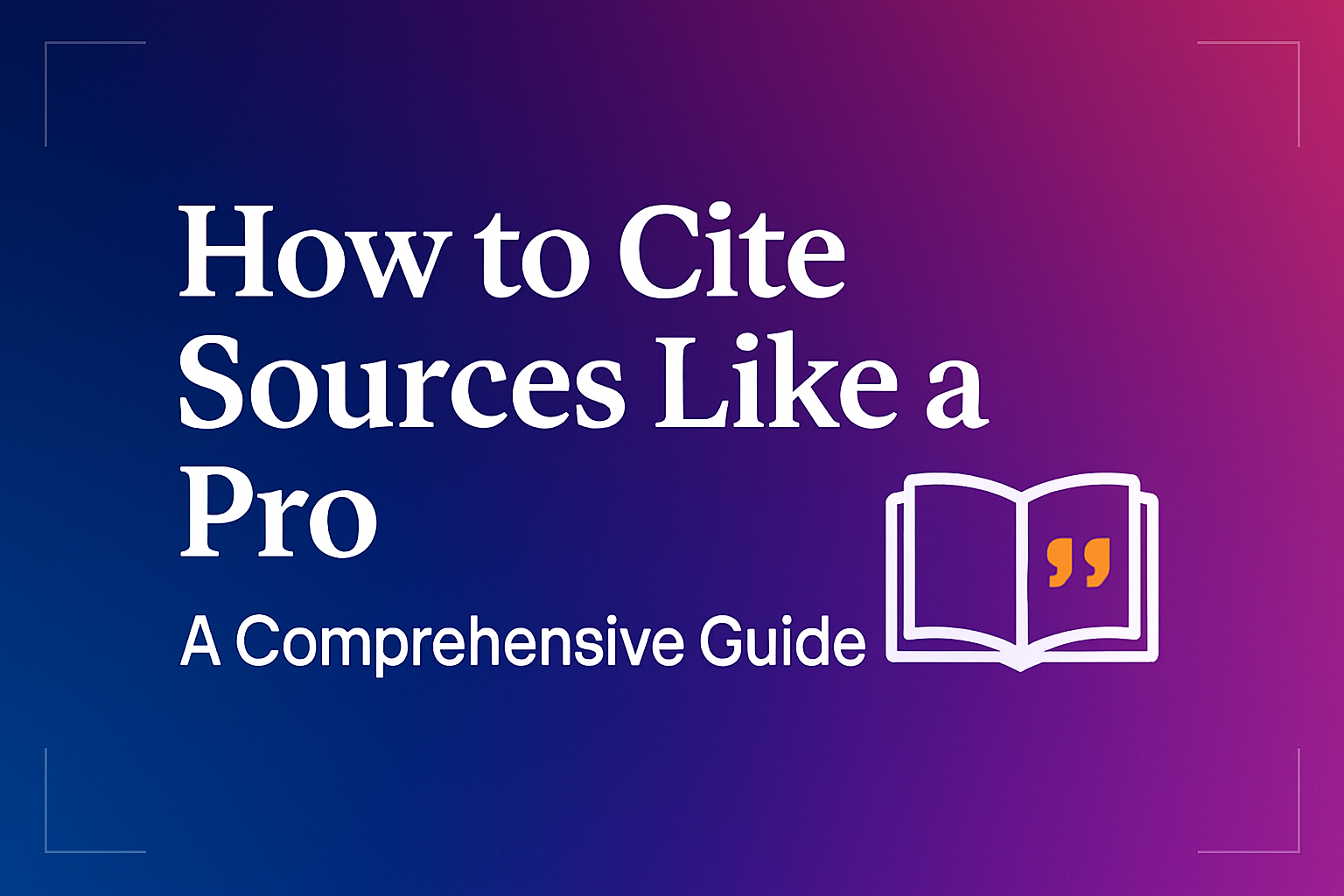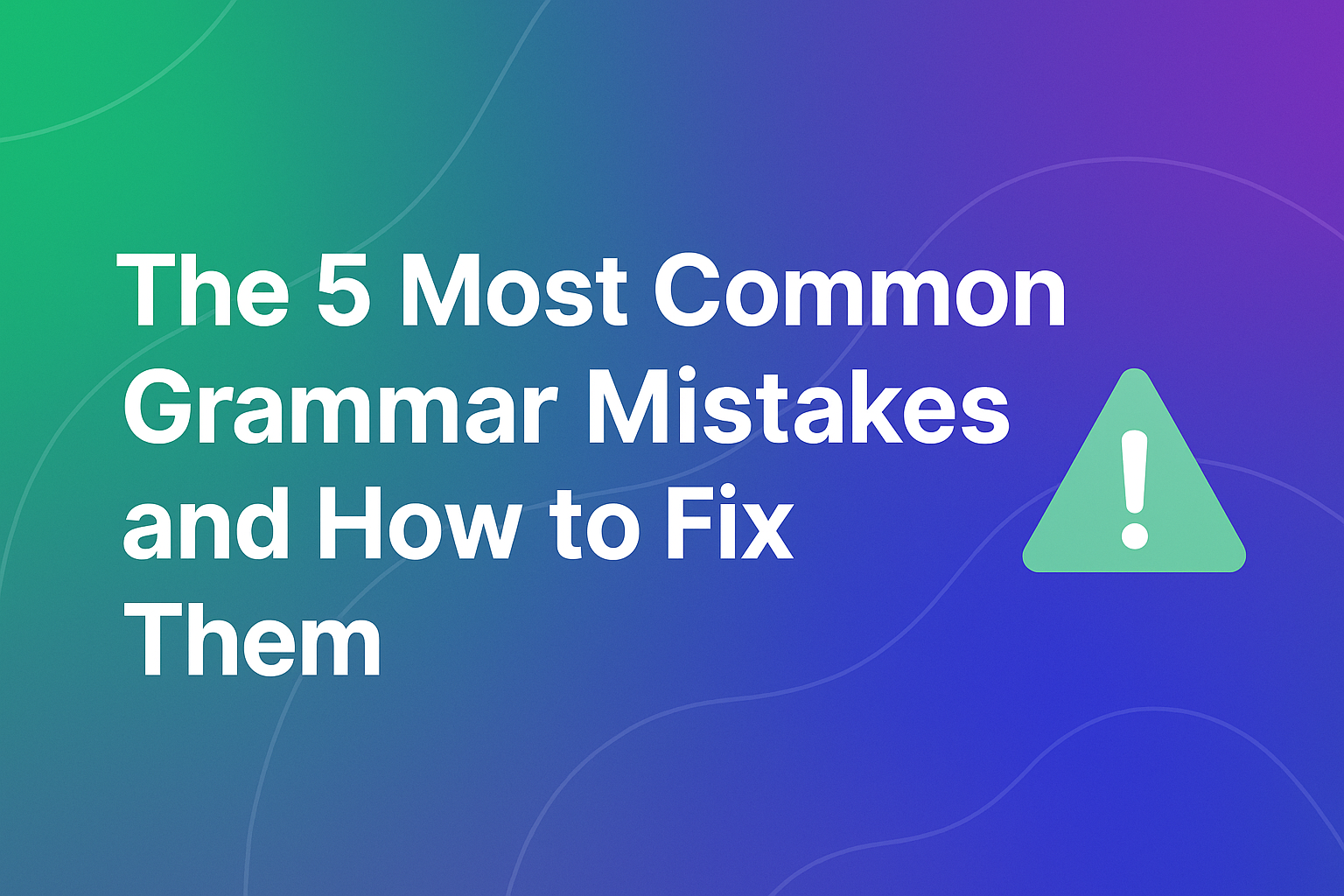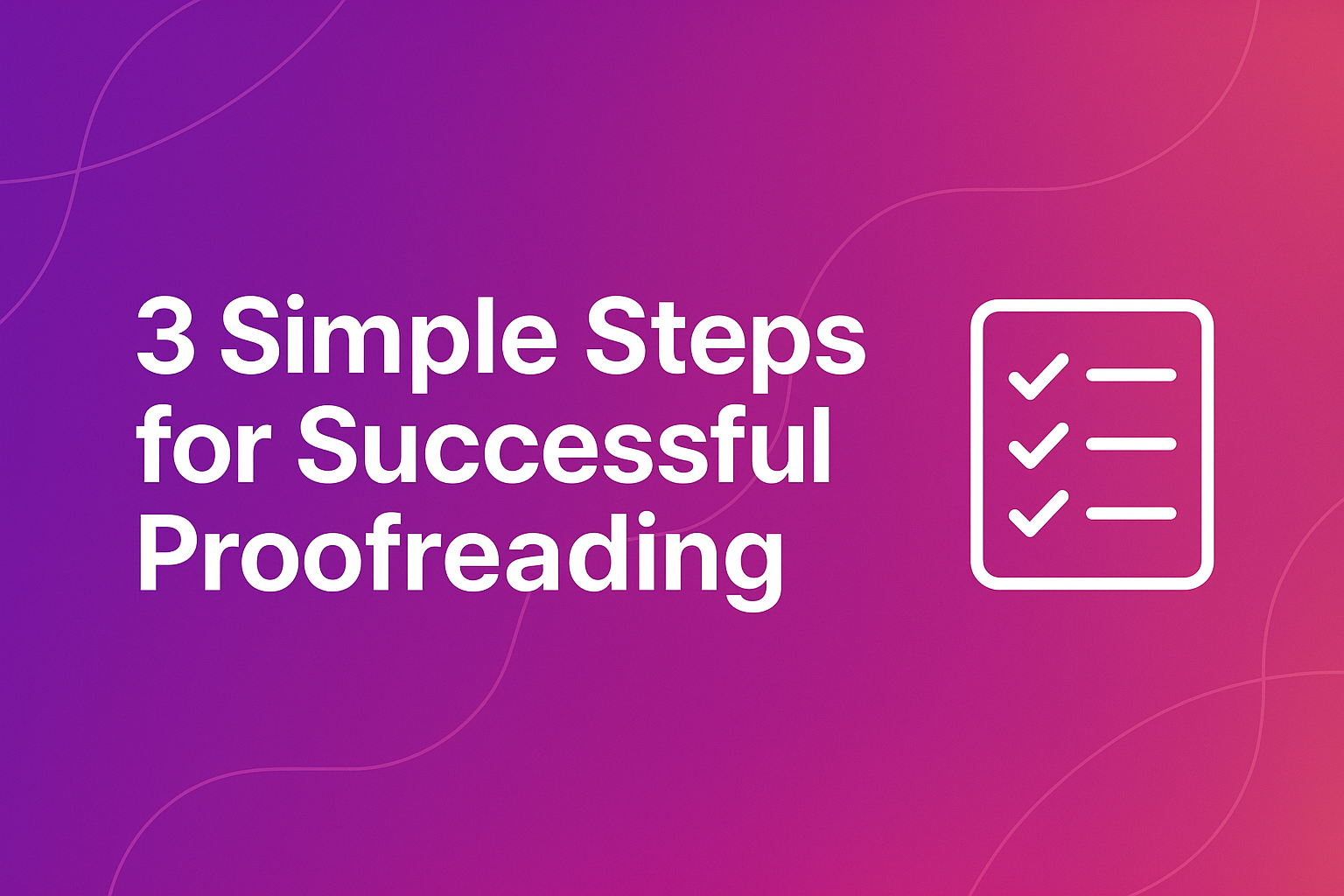
How to Cite Sources Like a Pro: A Comprehensive Guide
Master the art of citing sources with this comprehensive guide covering various citation styles, common mistakes to avoid, and best practices for academic and professional writing.
Read articleCheck your papers for plagiarism with our advanced AI tools


Even the most skilled writers occasionally stumble over grammar rules. Whether you're writing an important email, preparing a report, or crafting content for a website, grammatical errors can undermine your credibility and distract from your message. This guide highlights the five most common grammar mistakes and provides clear explanations and strategies to help you avoid them.
Subject-verb agreement errors occur when the subject and verb in a sentence don't match in number (singular or plural).
When the subject and verb don't agree, sentences sound awkward and unprofessional:
❌ Incorrect: "The group of students were late to class."
✅ Correct: "The group of students was late to class."
In this example, "group" is the subject (singular), not "students," so it requires a singular verb.
Words like team, family, committee, and staff can be confusing because they represent groups but are grammatically singular in American English:
❌ Incorrect: "The team are playing well this season."
✅ Correct: "The team is playing well this season."
When subjects are joined by "or" or "nor," the verb agrees with the subject closest to it:
❌ Incorrect: "Neither the students nor the teacher were prepared."
✅ Correct: "Neither the students nor the teacher was prepared."
Some indefinite pronouns (everyone, anybody, nobody, someone) are always singular:
❌ Incorrect: "Everyone in the rooms were asked to leave."
✅ Correct: "Everyone in the rooms was asked to leave."
A comma splice occurs when two independent clauses (complete sentences) are joined with only a comma.
Comma splices create run-on sentences that can confuse readers:
❌ Incorrect: "It was raining heavily, we decided to cancel the picnic."
✅ Correct: "It was raining heavily, so we decided to cancel the picnic."
You have several options to correct comma splices:
"It was raining heavily. We decided to cancel the picnic."
"It was raining heavily; we decided to cancel the picnic."
"It was raining heavily, so we decided to cancel the picnic."
The FANBOYS coordinating conjunctions are: For, And, Nor, But, Or, Yet, So.
"Because it was raining heavily, we decided to cancel the picnic."
Common subordinating conjunctions include: because, since, although, while, when, if, though.
"The heavy rain caused us to cancel the picnic."
Apostrophes cause confusion when used incorrectly for possessives, contractions, and plurals.
Misused apostrophes can change meaning or create nonsensical constructions:
❌ Incorrect: "The company reviewed it's policies."
✅ Correct: "The company reviewed its policies."
❌ Incorrect: "The dog wagged it's tail."
✅ Correct: "The dog wagged its tail."
❌ Incorrect: "We sold ten apple's."
✅ Correct: "We sold ten apples."
For singular nouns ending in s, style guides differ:
Both can be correct depending on which style guide you follow.
A dangling modifier occurs when a descriptive phrase doesn't clearly or logically connect to the subject it's supposed to modify.
Dangling modifiers create illogical or sometimes humorous sentences:
❌ Incorrect: "Walking down the street, the trees were beautiful."
✅ Correct: "Walking down the street, I thought the trees were beautiful."
In the incorrect version, the trees appear to be walking down the street!
❌ Incorrect: "After finishing the assignment, the TV was turned on."
✅ Correct: "After finishing the assignment, she turned on the TV."
❌ Incorrect: "Having worked all day, the bed was a welcome sight."
✅ Correct: "Having worked all day, I found the bed a welcome sight."
Pronoun errors occur when pronouns don't clearly match their antecedents (the nouns they replace) in number, person, or gender, or when the reference is ambiguous.
Unclear pronoun references confuse readers about who or what is being discussed:
❌ Incorrect: "Maria told Susan that she should apply for the job." (Who should apply?)
✅ Correct: "Maria told Susan that Susan should apply for the job."
❌ Incorrect: "The managers discussed the project schedule with the developers, and they were concerned about the timeline." (Who was concerned?)
✅ Correct: "The managers discussed the project schedule with the developers, and the managers were concerned about the timeline."
❌ Incorrect: "Each student must complete their assignment."
✅ Traditionally correct: "Each student must complete his or her assignment."
✅ Modern acceptable usage: "Each student must complete their assignment." (singular "they" is increasingly accepted)
❌ Incorrect: "The company changed their policy on remote work and hired new managers. This caused employee dissatisfaction." (What caused dissatisfaction?)
✅ Correct: "The company changed their policy on remote work and hired new managers. This policy change caused employee dissatisfaction."
Many grammar errors become obvious when you hear them. Reading aloud forces you to slow down and consider each word and phrase.
Fresh eyes catch more errors. Step away from your writing before reviewing it.
Tools like Plagly's Grammar Checker can identify many common errors, but don't rely on them exclusively.
Keep a personal list of the grammar errors you frequently make and review it while editing.
Having someone else review your writing can help identify issues you might miss.
If you're working to improve your grammar, concentrate on mastering one rule before moving to the next.
Language evolves, and some traditional grammar rules are becoming more flexible:
While being aware of changing standards, consider your audience and context. Academic and formal business writing typically adheres to more traditional rules, while marketing copy and casual communication allow more flexibility.
Improving your grammar doesn't happen overnight, but awareness of these common pitfalls is the first step toward clearer, more effective writing. By addressing these five frequent grammar mistakes, you'll significantly enhance the quality and professionalism of your written communication.
Remember that good grammar isn't about rigid rule-following—it's about clear communication. When your writing is grammatically sound, your ideas take center stage, and you build credibility with your readers.
Consider using tools like Plagly's Grammar Checker to help identify these common errors in your writing. With practice and attention, you'll find yourself making fewer mistakes and writing with greater confidence.

Master the art of citing sources with this comprehensive guide covering various citation styles, common mistakes to avoid, and best practices for academic and professional writing.
Read article
Explore how artificial intelligence is transforming language correction, writing assistance, and the broader landscape of human communication.
Read article
Master the art of proofreading with these three essential steps that will help you catch errors and polish your text to perfection.
Read article